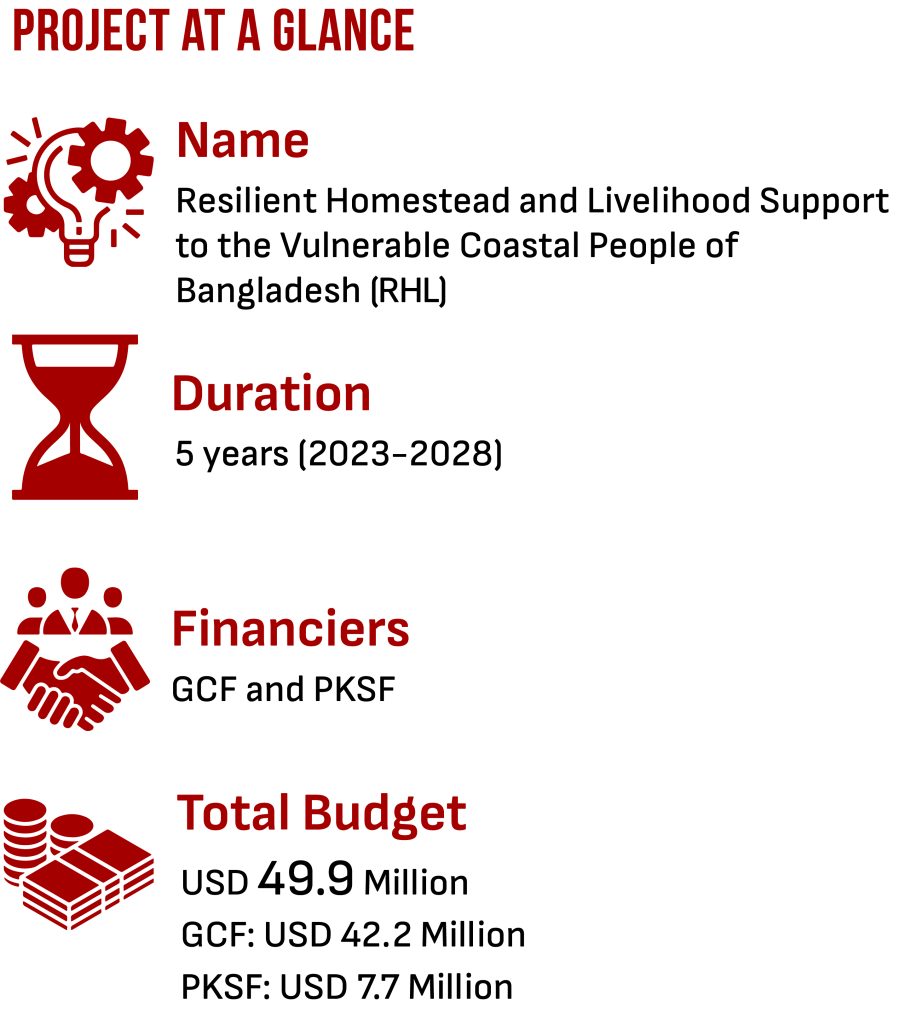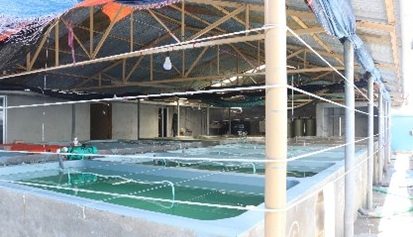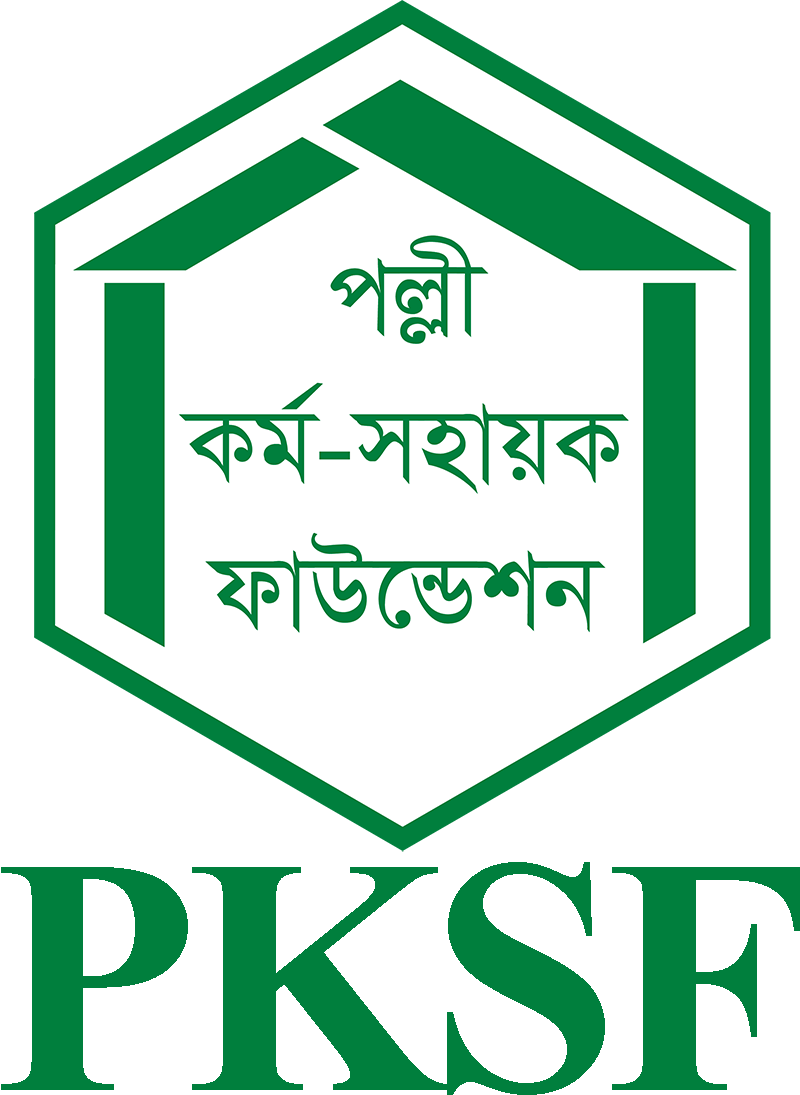


This resilient home gives my family a safe place to live and the strength to face life with hope. – Md. Abu Bokor, Morrelganj, Bagerhat
Now I can cultivate vegetables within my homestead area even in saline soil, and support my family.– Sathi Mondol, Assasuni, Satkhira
Crab farming gave me strength to rebuild my family’s life. I am no longer trapped in poverty.– Nurjahan Begum, Charfassion, Bhola
Building resilient in the coastal area in Bangladesh
Bangladesh is on the high list of countries most vulnerable to climate change. Around 22% of the country’s population living in 19 coastal districts is at the highest level of climate risk. The vulnerability of coastal people is characterized in three ways: 1) poor human settlement in low-lying areas; 2) climate-sensitive livelihood; and 3) scarcity of safe drinking water.
To reduce the climate-induced vulnerability of the most vulnerable coastal communities of Bangladesh and to enhance their resilience along with alternative livelihoods, PKSF initiated the “Resilient Homestead and Livelihood Support to the Vulnerable Coastal People of Bangladesh (RHL)” project with the funding support of Green Climate Fund (GCF). The RHL project was approved at the 36th Board Meeting of GCF, and subsequently, PKSF signed the FAA on 16 July 2023. The FAA was effective from 17 August 2023, and PKSF received its 1st disbursement on 27 September 2023.


Project Goal
The primary goal of the Project is to develop a climate-adaptive coastal community in Bangladesh by adopting climate-resilient housing and livelihood technologies. The Project will also enhance the capacity of communities and organizations to address climate change impacts in their localities.
Key Objectives
- To develop climate-resilient homesteads for marginal vulnerable communities in the southwest coastal zone of Bangladesh;
- To develop climate-adaptive livelihoods for coastal vulnerable communities; and
- To enhance knowledge and awareness of the coastal vulnerable communities on climate change issues.
Project Event Calendar | |
14 July 2023 | FAA Signature |
03 August 2023 | Project Management Unit Formation |
17 August 2023 | FAA Effective |
27 September 2023 | Receive 1st Disbursement from GCF |
03 December 2023 | Project Staff Recruitment |
Oct-Dec 2023 | Develop Beneficiaries Selection/ eligibility Criteria |
Oct-Dec 2023 | Stakeholder Consultation |
September’23 – February `24 | Selection of Implementation Entities |
October 2023 | Procurement of Goods |
November 2023 –January 2024 | Project Implementation Guideline Development |
29 January 2024 | Project Inception Workshop |
19 February 2024 | Selection of IEs completed |
March 2024 | Project activities started at the Field level |
Implementation approach:
PKSF plays a dual role in the implementation of the RHL project, as the Accredited Entity and the single Executing Entity of the Project. To implement the project, PKSF has established a Project Management Unit (PMU) and initially deployed the necessary official personnel from its core team, who were later replaced by recruiting project staff.
The RHL Project is being implemented in twenty upzilas of seven coastal districts, namely Khulna, Bagerhat, Satkhira, Barguna, Patuakhali, Bhola, and Cox’s Bazar. These areas were selected based on their high vulnerability to sea level rise, salinity intrusion, coastal flooding, cyclones, and storm surges.
The project is being implemented through 18 Partner Organizations (PO) serving as Implementing Entities (IEs). IEs were selected through a rigorous process to ensure maximum transparency and accountability, compliance with the selection criteria of Implementing Entities outlined in the Funding Proposal. PKSF entered into relevant service agreements with the IEs, which set out their respective responsibilities in relation to the project implementation. Each of the IEs established a PMU at its local office.
To ensure the selection of more than 0.3 million project participants, around 3,200 Participatory Rural Appraisal (PRA) exercises were conducted. These exercises helped identify climate-vulnerable populations based on the detailed eligibility criteria described in the project documents. The project has also developed a detailed Socio-Economic profile of its beneficiaries. Beneficiaries were organized into Climate Change Adaptation Groups (CCAGs), community-based groups supported by IEs. CCAGs work as the centre for all decision-making and select eligible participants for various project activities based on their vulnerabilities and livelihood needs. The project has 3200 CCAGs.
Major Activities:

Design and building of homesteads
Project Target: 3000 Homesteads
Target as of September 2025: 1000 Homesteads
Progress as of September 2025: 995 Homesteads
The RHL project is building climate-resilient homesteads in coastal areas to protect vulnerable families from floods, cyclones, and tidal surges. Each home is built on a raised plinth with reinforced concrete, safe sanitation, clean water, solar power, and improved stoves—ensuring safety, health, and sustainability.

Homestead tree planting
Project Target: 400,000
Target as of September 2025: 150,000
Progress as of September 2025: 147,369
The RHL project plants trees around homesteads as green windbreakers, managed directly by the beneficiaries to protect their homes and surroundings from storms and cyclones. Alongside this, project plant trees on roadside and school plantations transforming coastal areas into greener, more resilient spaces. Species such as coconut, guava, sapodilla, wood apple, betel nut, and neem not only enrich the environment but also support livelihoods. Beneficiaries received garden trellis nets to ensure healthy tree growth and sustainability.

Construction of slatted houses for goat/sheep rearing
Project Target: 20,000 slatted houses
Target as of September 2025: 7,500 slatted houses
Progress as of September 2025: 7,436 slatted houses
To improve hygiene, reduce disease risks among livestock, and enhance beneficiaries’ livelihoods, the project is constructing slatted houses for goat and sheep rearing. Before construction, beneficiaries are systematically selected and trained on the proper use and maintenance of these structures to ensure effective and sustainable management

Introduce the cultivation of saline-tolerant vegetables within homestead areas
Project Target: 20,000
Target as of September 2025: 8,000
Progress as of September 2025: 7,943
The project supports beneficiaries in cultivating saline-tolerant vegetables in homestead areas to improve food security and livelihoods in salinity-affected regions. Beneficiaries receive seasonal seeds of tomato, eggplant, red amaranth, kangkong, and turnip, along with ginger for sack cultivation. The project also provides seeds, seedlings, nets, and watering cans to promote vegetable cultivation using the bed method, ensuring sustainable household production and better nutrition in coastal communities.

Development of crab hatcheries (1st stage)
Project Target: 50 micro hatcheries
Target as of September 2025: 25 hatcheries
Progress as of September 2025: 2 hatcheries
To ensure a reliable source of crab larvae and reduce dependency on wild collection, the project is developing crab hatcheries that support ecosystem balance. This initiative creates new income opportunities for local farmers and contributes to sustainable, climate-resilient livelihoods in coastal areas.

Technical and financial support for “crab nursers” (2nd stage)
Project Target: 500 nurseries
Target as of September 2025: 250 nurseries
Progress as of September 2025: 53 nurseries
The project supports beneficiaries in developing crab nurseries to ensure the healthy growth of crab larvae before they reach for fattening. These nurseries help reduce pressure on natural crab stocks while creating sustainable income opportunities for coastal families and promoting environmentally responsible aquaculture practices

Technical and financial support to “crab farmers” (3rd stage)
Project Target: 20,000 farmers
Target as of September 2025: 8,000 farmers
Progress as of September 2025: 5,429 farmers
The project provides technical and financial support to beneficiaries for crab cultivation to enhance income and livelihood opportunities for coastal families. Beneficiaries are trained in sustainable crab farming practices, including cage and pen culture techniques, to ensure healthy growth and higher yields.

Monthly group meetings on climate change issues for CCAG
Project Target: 192,000 meetings
Target as of September 2025: 76,800 meetings
Progress as of September 2025: 56,968 meetings
To raise awareness on environmental and climate issues and enhance community engagement, the RHL Project has formed 3,200 Climate Change Adaptation Groups (CCAGs). Each group meets monthly and serves as the hub for decision-making, selecting eligible participants based on vulnerabilities and livelihood needs.
Project Implementing Entities
Implementing Entity (IE) | Name of the district | Name of the Upazila | Get updates |
Ad-din Welfare Center | Khulna | Dacope | |
BASTOB- Initiative for People’s Self-Development | Cox’s Bazar | Moheshkhali | |
COAST Foundation | Cox’s Bazar | 1. Cox’s Bazar Sadar 2. Kutubdia | |
Community Development Centre (CODEC) | Patuakhali and Barguna | Rangabali and Patharghata | |
DAM Foundation for Economic Development (DFED) | Barguna | Barguna Sadar | https://www.facebook.com/people/RHL-DFED/61559400203294/
|
Poribar Unnayon Songstha (FDA) | Bhola | 1. Charfassion 2. Monpura | |
Grameen Jano Unnayan Sangstha (GJUS) | Bhola | 1. Bhola Sadar 2. Borhanuddin | |
HEED Bangladesh | Patuakhali | Kalapara | |
Integrated Development Foundation (IDF) | Cox’s Bazar | Chakaria | |
Jagorani Chakra Foundation (JCF) | Khulna | Koyra | |
Nabolok Parishad | Bagerhat | Mongla | |
Nowabenki Gonomukhi Foundation (NGF) | Satkhira | Shyamnagar | |
Rural Reconstruction Foundation (RRF) | Bagerhat | Morrelganj | https://www.facebook.com/profile.php?id=61576364934213
|
Social Assistance and Rehabilitation for the Physically Vulnerable (SARPV) | Cox’s Bazar | Chakaria | https://www.facebook.com/sarpv.bd/
|
Society for Development Initiatives (SDI) | Cox’s Bazar | Teknaf | |
Satkhira Unnayan Sangstha (SUS) | Satkhira | Shyamnagar | |
Unnayan Prochesta | Satkhira | Assasuni | |
Young Power in Social Action (YPSA) | Cox’s Bazar | Ramu | https://web.facebook.com/profile.php?id=61572243674841&_rdc=1&_rdr# |
Documents and Publications
- GCF FUNDED ACTIVITY AGREEMENT between PALLI KARMA-SAHAYAK FOUNDATION and GREEN CLIMATE FUND
- Inception Report: FP206: Resilient Homestead and Livelihood Support to the Vulnerable Coastal People of Bangladesh (RHL) Project
- Gender Assessment and Action Plan
- উপ–প্রকল্প প্রকাশ প্রতিবেদন (Subproject Disclosure Report): (পরিবেশ ও সামাজিক সুরক্ষা) পরিবেশগত ও সামাজিক কর্মপরিকল্পনা
- Subproject Disclosure Report: (Environment and Social Safeguard) Environmental and Social Action Plan (ESAP)
- RHL project Brochure
- RHL project Newsletter: Volume 1 – September 2024
- RHL project Newsletter: Volume 2 – December 2024
- RHL project Newsletter: Volume 5-July-Sep 2025
- Success Story 1: Saline -tolerant vegetable cultivation
- Success Story 2: Goat/Sheep rearing in slatted houses
- RHL project Newsletter (Volume 3: January – March 2025)
- RHL project Newsletter (Volume 4: April-June 2025)
- Carb hatchery and nursery manual-RHL project
- Crab Flipchart-RHL project-20 August 2025
- Finance Guideline-RHL project-20 August 2025
- Implementation Manual-RHL project-20 August 2025
- ESIM Report July-September 2025
- RHL প্রকল্পের পরিবেশগত ও সামাজিক ব্যবস্থাপনা গাইডলাইন (ESMG)
- Quarterly Newsletter of the RHL Project (Volume 6:Oct- Dec 2025)
